Reflection: What the FreeP Taught Me as a Journalist, a Manager, a Student
A former campus news editor and chair of the Daily Free Press board looks back at her experience and how it positioned her for success
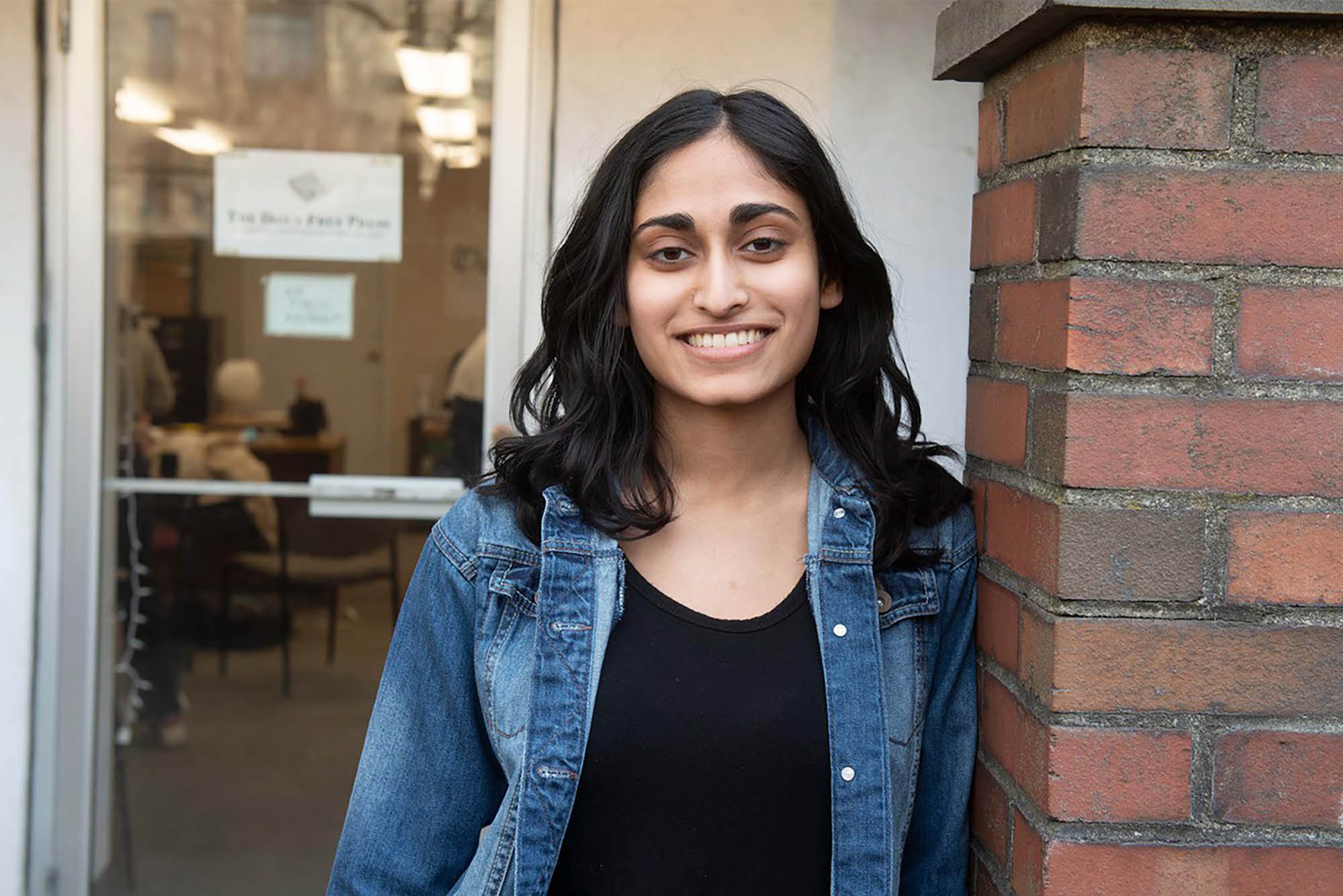
Madhri Yehiya has “finally found the words to reflect on one of the most rewarding experiences of my college career.” Photo courtesy of Madhri Yehiya
Reflection: What the FreeP Taught Me as a Journalist, a Manager, a Student
A former campus news editor and chair of the Daily Free Press board looks back at her experience and how it positioned her for success
It’s not very often that a college student gets to run a company for a year.
With six months to go before my graduation from Boston University, and six months passed since my departure from the board of directors of the Daily Free Press, I have finally found the words to reflect on one of the most rewarding experiences of my college career.
As a non-journalism major who went from working 40 hours per week as campus news editor to serving as chair of the Back Bay Publishing Co., Inc.—a nonprofit board run by former editors who manage BU’s independent student paper from behind the scenes—I am no stranger to imposter syndrome. My dedication to something I wasn’t studying or planning to pursue in the future sometimes sparked confusion both inside and outside of the FreeP.
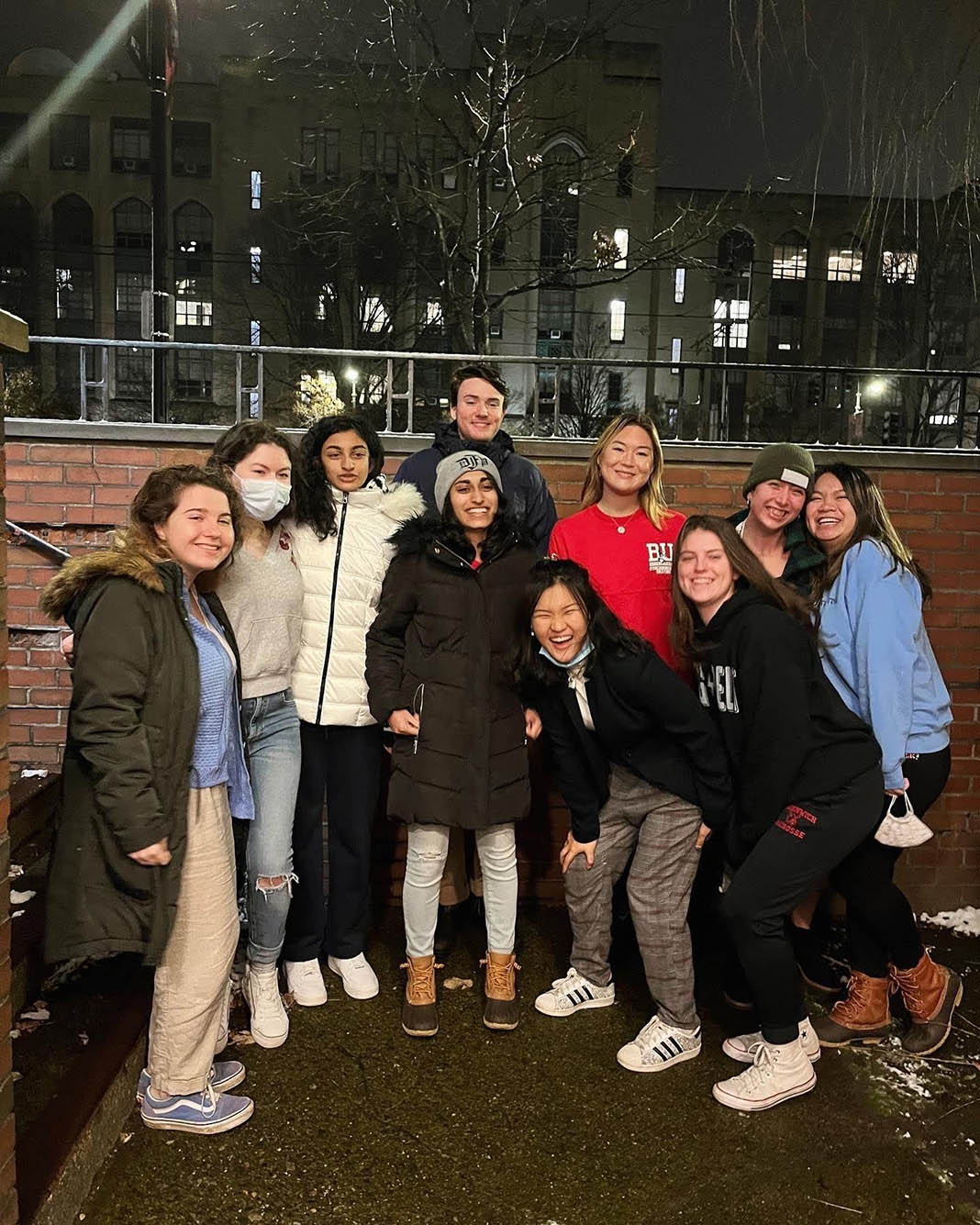
But I absolutely loved it. Completing a valuable policy paper or roundtable discussion for my international relations and economics classes couldn’t compare to having pushed for wellness standards and a coeditor system, so that working full-time was no longer the norm. Writing a fascinating but inaccessible senior thesis still doesn’t beat the old satisfaction of hitting “Post” on yet another article that gave voice to unheard student concerns.
One of my personal favorites was a story on the gradual obstruction of the iconic Citgo sign by the construction of a new building in Kenmore Square. It was the only full-length article I had the time to write as campus editor and it ended up on the front page of that month’s print edition. From roaming through the construction site in search of an interview to laughing off an online comment that doubted I had contacted any official sources, I was reminded of how much more fun it was to be the writer out in the field, asking the questions and telling the story directly. It was hardly our most investigative piece, but I realized I was an active journalist at heart, even if it meant being the bottom rung of the ladder at the FreeP.
Although my fellow writers and editors had come to know me and my section for its “spicy” coverage, I also had to learn when to rein it in. I was only a few weeks into working as a full-time editor when, on the evening of September 28, 2021, a BU Alert warning of an evacuation and fire alarms at 10 Buick St. was sent out. In the hours that followed, rumors ran amok on the true cause of the incident. With the University needing time to investigate and students offering speculation in our interviews, my associate editors and I were in the FreeP office well past midnight trying to piece together a coherent article. This was my first breaking news brief as editor, and in that moment readers needed the basic facts more than anything. The time for a more nuanced article would come later.
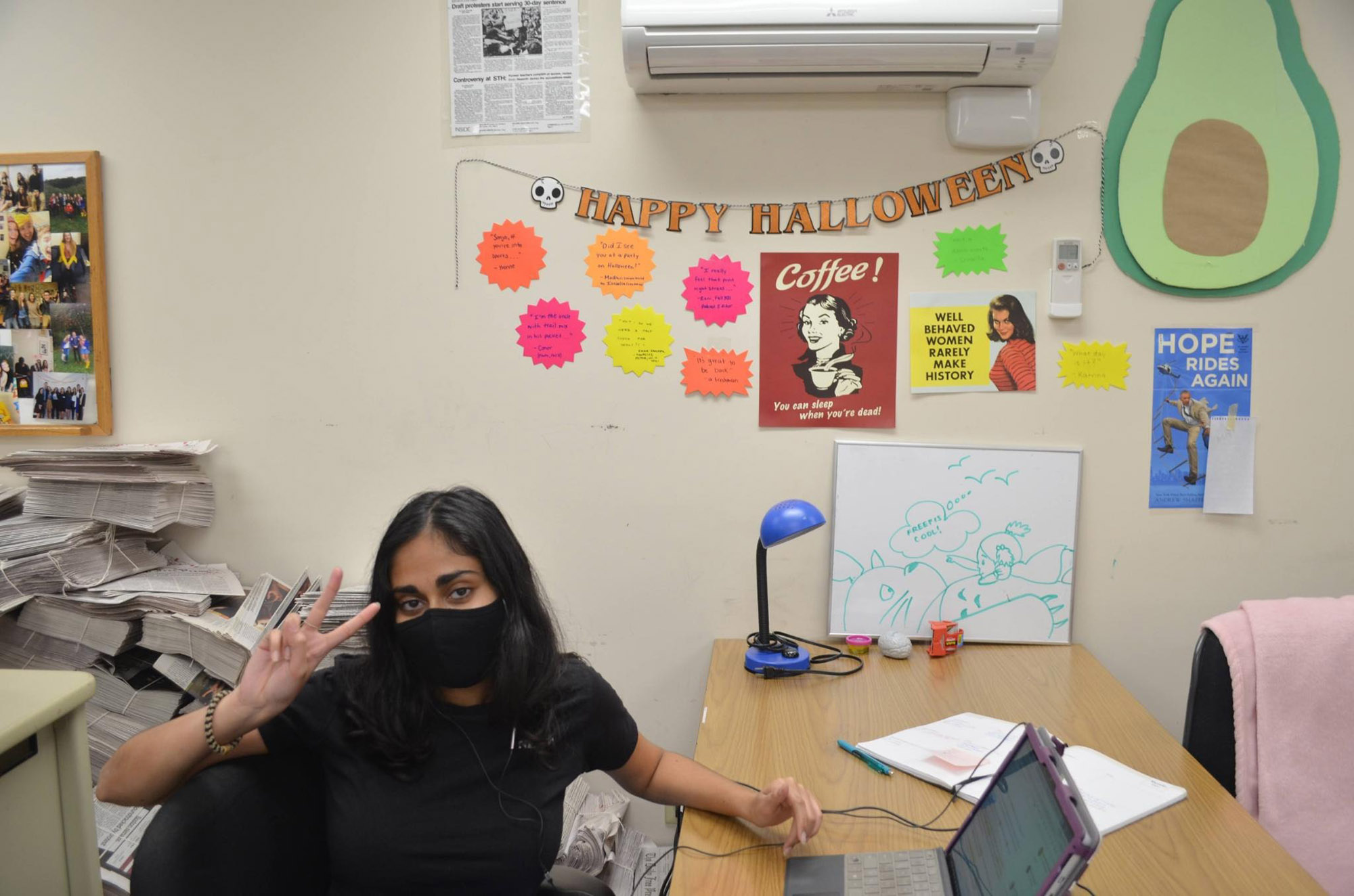
Although balancing a full-time editing job as a full-time student was unmanageable at times, it helped prepare me for the new and different challenge of managing the noneditorial issues of close to 200 FreeP writers, editors, podcasters, photographers, graphic designers, and more. I accepted early on in my term as chair that I couldn’t make everyone happy. I was incredibly conscious of how, no matter what was going on in my own life, the speed at which I was able to think of new ideas, respond to messages, assign tasks, draft documents, hold impromptu meetings, and approve posts or policies could affect the whole operation down to our freshmen writers.
I had to set my own bar—no one was there to tell me exactly what to do or which goals to meet by when. For a year straight, I was rarely truly off the clock without feeling irresponsible. There was always more to do.
I had to set my own bar—no one was there to tell me exactly what to do or which goals to meet by when. For a year straight, I was rarely truly off the clock without feeling irresponsible. There was always more to do.
Ironically, for all my time spent helping to create better working conditions for editors, I never stopped to think about the same for the chair and vice chair roles on the managing side. I found myself thinking about the elected officials and company CEOs who handle far more than anyone realizes, sometimes in the face of dehumanizing criticism.
But who would want to hear me complain about the job I had signed up for and clearly wanted? My workaholic self decided I was content to be the figure constantly coordinating projects behind the scenes, if it meant living up to my promise of making the FreeP and board run more smoothly.
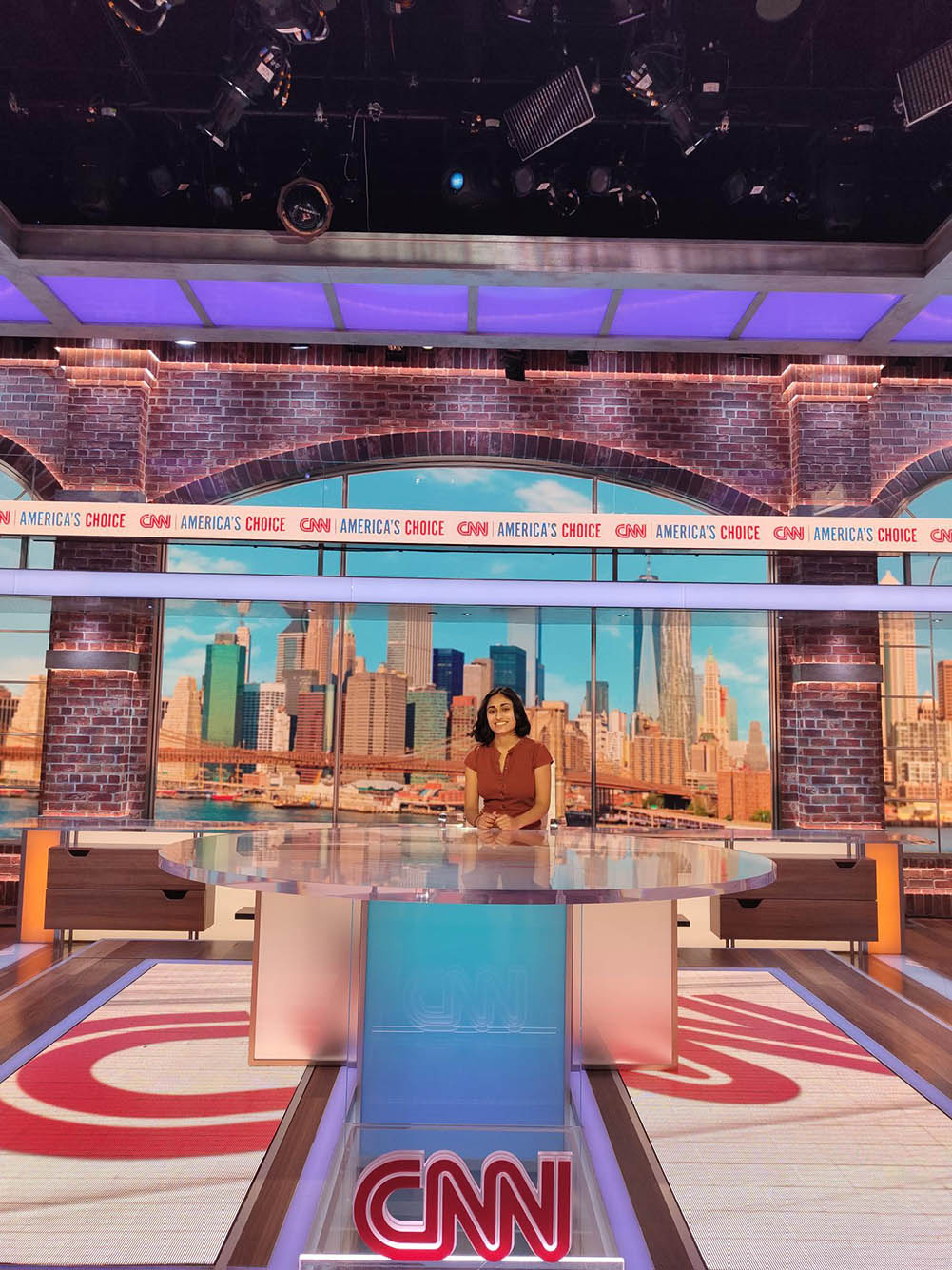
From holding The Next Edition alumni networking conference, to improving web security, to standardizing recordkeeping, to raising funds, I am so proud of our accomplishments. And I was lucky to have alongside me a number of incredible people whom I could lean on to help make things happen.
One of my first thoughts when I got the call that I had been accepted to a summer internship at CNN in New York City—after I stopped silent screaming and jumping—was how, through the highs and lows, every last second I had spent working for the FreeP had been worth it.
I went into my internship with zero experience in broadcast news and left realizing I could tie my majors and passion for journalism into a career. I was surrounded by successful anchors, correspondents, writers, and producers who had come to the field from a variety of backgrounds. Team members on the global business show I was assigned to told me that having a subject specialty on top of reporting skills was why they chose me. On several occasions I dug up notes from previous international relations and economics classes in order to understand the content we were covering. My imposter syndrome was starting to fade away.
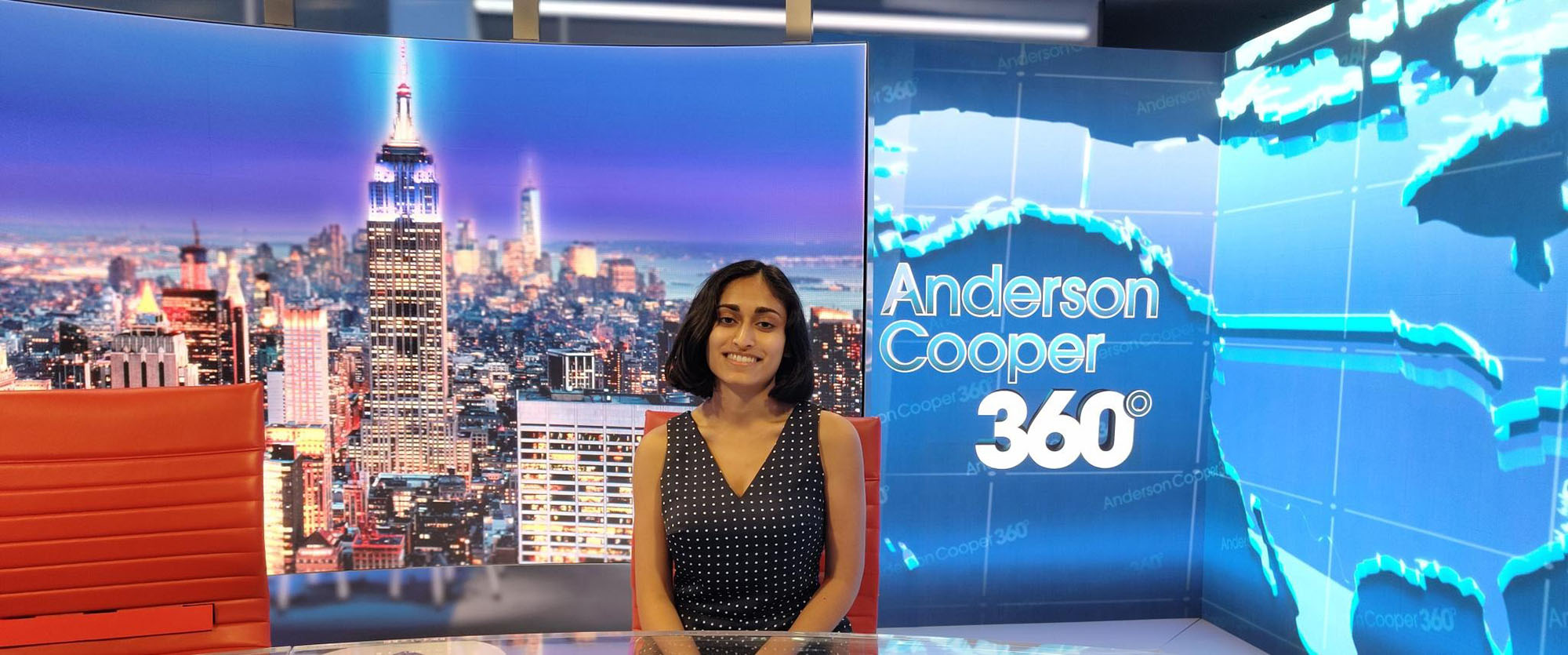
I miss the “work hard, play hard” energy of CNN and New York every day, but there is comfort to be found in finally being able to pinpoint your dreams. I may not find my way back into journalism immediately after graduation, but whatever I do instead will give me the transferable skills for when I do.
It’s been over six months since I brain-dumped everything I had learned on my successor, and two years since I spent most evenings working alongside my fellow section editors. Every time I walk by the office below Insomnia Cookies on Central Campus, I find myself glancing in. I read every newsletter, collect every print edition, and donate to every fundraiser. I catch myself saying “we,” “us,” and “our” whenever talking about the FreeP, as though I’m still a part of it, and it’s still a part of me.
The Daily Free Press taught me not only almost everything I know about journalism, but also almost everything I know about management. I didn’t come to BU as a communications or business major, but I will leave with invaluable experience in both those fields. Having served my time, it’s heartwarming to see the work carried on. I owe so much to the FreeP for being the launchpad for whatever comes next—if nothing else, I hope my legacy is that I gave back.
Madhri Yehiya (CAS’24) is a senior at Boston University studying international relations and economics. After joining BU’s independent student newspaper the Daily Free Press as a freshman, she fell in love with journalism and spent the next several semesters in various writing, editing, and leadership roles at the FreeP. After a summer internship on CNN’s global business news show Quest Means Business, Madhri left wanting to pursue a career in covering global socioeconomic issues, particularly in the Middle East and South Asia. In her free time, you can find her reading, writing, road-tripping, and rock climbing.
Comments & Discussion
Boston University moderates comments to facilitate an informed, substantive, civil conversation. Abusive, profane, self-promotional, misleading, incoherent or off-topic comments will be rejected. Moderators are staffed during regular business hours (EST) and can only accept comments written in English. Statistics or facts must include a citation or a link to the citation.